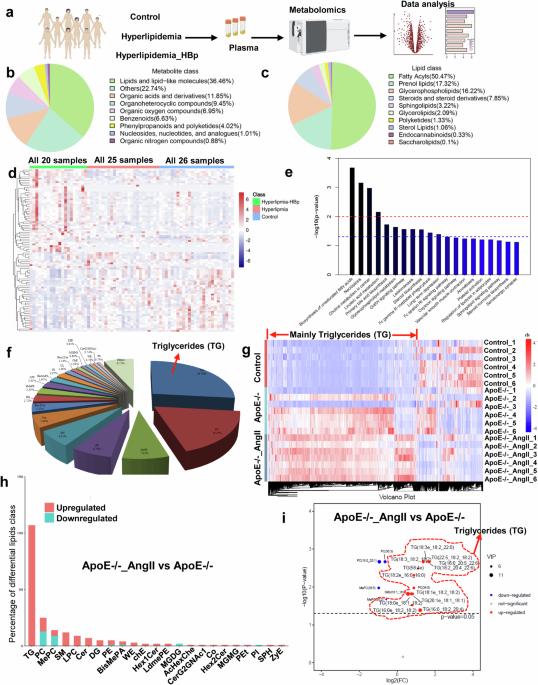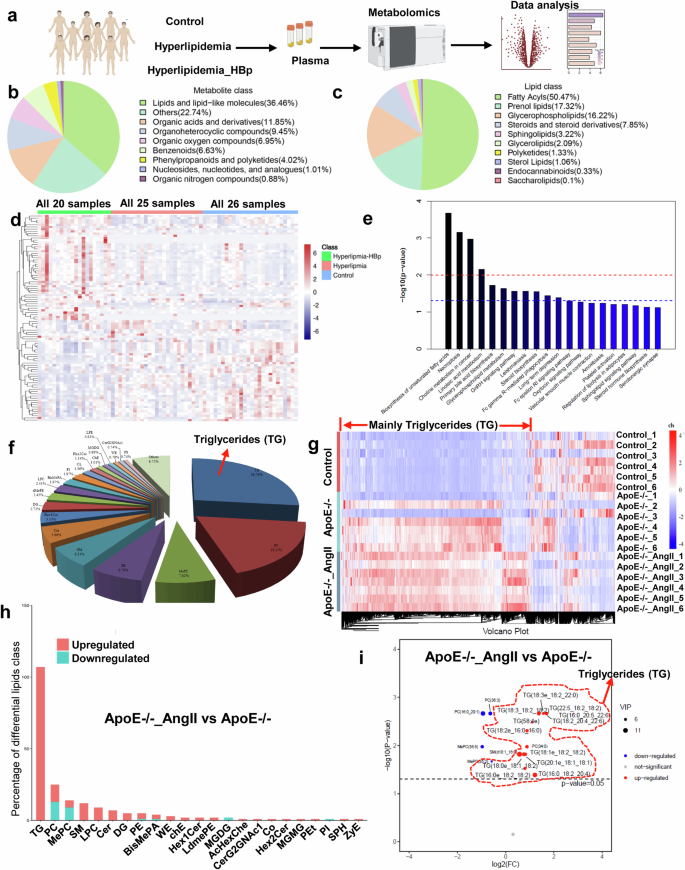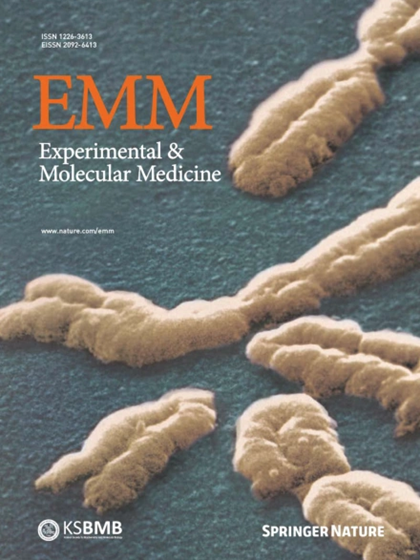CD34+细胞衍生的FABP4+成纤维细胞介导了促进心脏纤维化的脂质代谢改变。
IF 9.5
2区 医学
Q1 BIOCHEMISTRY & MOLECULAR BIOLOGY
引用次数: 0
摘要
高脂血症和高血压可能在心脏纤维化中起作用,其中异质性成纤维细胞群似乎很重要。然而,CD34+祖细胞是否参与了心脏纤维化的发病机制尚不清楚。本研究旨在探索CD34+细胞在高脂血症期间心脏纤维化中的分化机制。通过分析从小鼠心脏提取的50,870个单细胞和从人类心脏提取的76,851个单细胞的转录组,我们有效地展示了整个心脏纤维化过程中不断演变的细胞景观。脂质代谢紊乱会加速纤维化的发展。通过整合骨髓移植模型和系谱追踪,我们的研究表明,高脂血症可加速非骨髓来源的CD34+细胞在血管紧张素II作用下分化为成纤维细胞,尤其是FABP4+成纤维细胞。有趣的是,CD34+细胞的部分消耗导致心脏中甘油三酯明显减少,纤维化减轻,心脏功能得到改善。此外,人体心脏组织的免疫染色显示了 CD34+ 细胞和成纤维细胞的共定位。从机理上讲,我们通过伪时间分析对单细胞 RNA 测序数据进行了研究,并结合体外细胞研究揭示了 PPARγ/Akt/Gsk3β 通路在协调 CD34+ 细胞向 FABP4+ 成纤维细胞分化过程中的关键作用。通过我们的研究,我们对高脂血症肥厚型心脏中CD34+细胞衍生细胞的细胞景观有了宝贵的认识,表明在此过程中,非骨髓衍生的CD34+细胞分化成FABP4+成纤维细胞,通过PPARγ/Akt/Gsk3β途径加速脂质积累并促进心力衰竭。本文章由计算机程序翻译,如有差异,请以英文原文为准。


Altered lipid metabolism promoting cardiac fibrosis is mediated by CD34+ cell-derived FABP4+ fibroblasts
Hyperlipidemia and hypertension might play a role in cardiac fibrosis, in which a heterogeneous population of fibroblasts seems important. However, it is unknown whether CD34+ progenitor cells are involved in the pathogenesis of heart fibrosis. This study aimed to explore the mechanism of CD34+ cell differentiation in cardiac fibrosis during hyperlipidemia. Through the analysis of transcriptomes from 50,870 single cells extracted from mouse hearts and 76,851 single cells from human hearts, we have effectively demonstrated the evolving cellular landscape throughout cardiac fibrosis. Disturbances in lipid metabolism can accelerate the development of fibrosis. Through the integration of bone marrow transplantation models and lineage tracing, our study showed that hyperlipidemia can expedite the differentiation of non-bone marrow-derived CD34+ cells into fibroblasts, particularly FABP4+ fibroblasts, in response to angiotensin II. Interestingly, the partial depletion of CD34+ cells led to a notable reduction in triglycerides in the heart, mitigated fibrosis, and improved cardiac function. Furthermore, immunostaining of human heart tissue revealed colocalization of CD34+ cells and fibroblasts. Mechanistically, our investigation of single-cell RNA sequencing data through pseudotime analysis combined with in vitro cellular studies revealed the crucial role of the PPARγ/Akt/Gsk3β pathway in orchestrating the differentiation of CD34+ cells into FABP4+ fibroblasts. Through our study, we generated valuable insights into the cellular landscape of CD34+ cell-derived cells in the hypertrophic heart with hyperlipidemia, indicating that the differentiation of non-bone marrow-derived CD34+ cells into FABP4+ fibroblasts during this process accelerates lipid accumulation and promotes heart failure via the PPARγ/Akt/Gsk3β pathway. Cardiac fibrosis, a condition leading to heart failure, is caused by the activation of cardiac fibroblasts. These cells are influenced by various factors, including disorders in lipid metabolism. The role of lipid metabolism in cardiac fibrosis, particularly under conditions like hyperlipidemia and hypertension, is not fully understood. This study investigates how lipid metabolism disorders affect cardiac fibrosis and the role of certain cells in this process. The research uses human heart samples and mouse models, including a specific type of genetically modified mouse with induced hypertension. The study reveals that lipid metabolism disorders significantly contribute to cardiac fibrosis by promoting the transformation of CD34+ cells into FABP4+ fibroblasts, worsening heart fibrosis. The findings suggest potential new treatments for cardiac fibrosis. This summary was initially drafted using artificial intelligence, then revised and fact-checked by the author.
求助全文
通过发布文献求助,成功后即可免费获取论文全文。
去求助
来源期刊

Experimental and Molecular Medicine
医学-生化与分子生物学
CiteScore
19.50
自引率
0.80%
发文量
166
审稿时长
3 months
期刊介绍:
Experimental & Molecular Medicine (EMM) stands as Korea's pioneering biochemistry journal, established in 1964 and rejuvenated in 1996 as an Open Access, fully peer-reviewed international journal. Dedicated to advancing translational research and showcasing recent breakthroughs in the biomedical realm, EMM invites submissions encompassing genetic, molecular, and cellular studies of human physiology and diseases. Emphasizing the correlation between experimental and translational research and enhanced clinical benefits, the journal actively encourages contributions employing specific molecular tools. Welcoming studies that bridge basic discoveries with clinical relevance, alongside articles demonstrating clear in vivo significance and novelty, Experimental & Molecular Medicine proudly serves as an open-access, online-only repository of cutting-edge medical research.
 求助内容:
求助内容: 应助结果提醒方式:
应助结果提醒方式:


